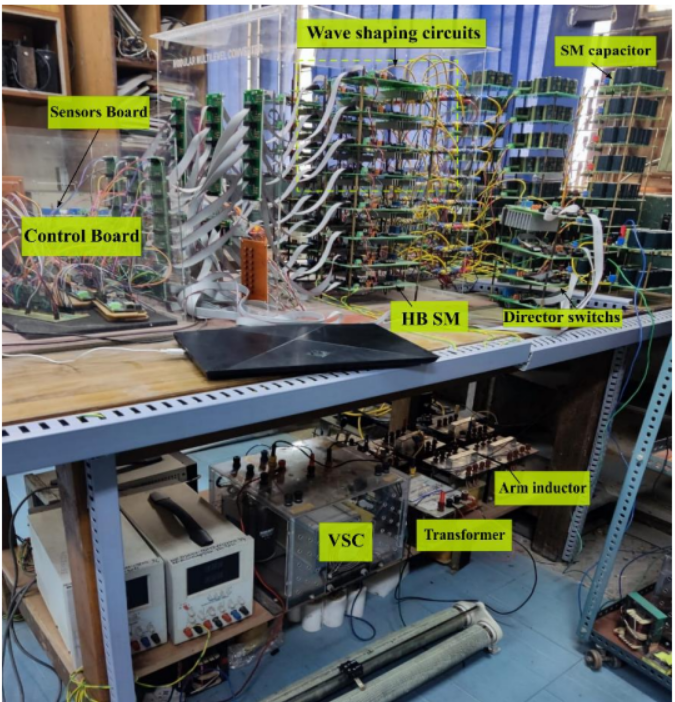Fault tolerant converters for DC grid applications

Fig. 2. Scaled-down laboratory prototype of a fault tolerent modular multilevel converter .
Due to the higher losses associated with the 2-level VSC-based HVDC system and the lack of semiconductor devices with high ratings, there was limited use of the VSC HVDC system in the earlier decades. However, compared to thyristor-based HVDC technology, VSC-based HVDC has several advantages, like its ability to independently control active and reactive power, reduced filter requirement, weak grid connectivity, etc. With the increased penetration of inverter-based resources, it is necessary to use VSC-based HVDC transmission, as LCC-based transmission has several operational challenges when integrated with weak grids.
The advancements in multilevel converter technologies and the availability of cost-effective, high-voltage, fast-switching semiconductor devices have made VSC-based HVDC more feasible in recent years. The transition from a 2-level VSC to a Modular Multilevel Converter (MMC) has given a major boost to VSC HVDC technology. The VSC-HVDC system using modular multilevel converters (MMC) achieves efficiencies and voltage ratings comparable to thyristor-based converters. Due to its modular structure, the MMC can be scaled up to higher voltage levels.
The thyristor-based HVDC has excellent fault ride-through capability compared to VSC HVDC transmission. Active research is ongoing to achieve similar fault-tolerant capability in VSC-based HVDC systems. The fault-tolerant capability of MMC depends on the type of submodules used. Two types of submodules, full bridge and half bridge submodules are used for the modular multilevel converters. The MMC with half-bridge submodules has lesser losses, whereas the one using full-bridge submodules has higher losses. However, the MMC with half bridge submodules cannot isolate itself during a DC fault due to the conduction of the freewheeling diode. On the other hand, MMC HVDC systems based on full bridge submodules have better fault ride-through capability, as they can isolate the AC and DC systems during a DC side fault.
The DC-AC converters for HVDC transmission systems and DC-DC converters for interconnecting DC grids are an ongoing field of research. Modularity, lower losses, and fault-tolerant capability are driving parameters behind the research in this field.